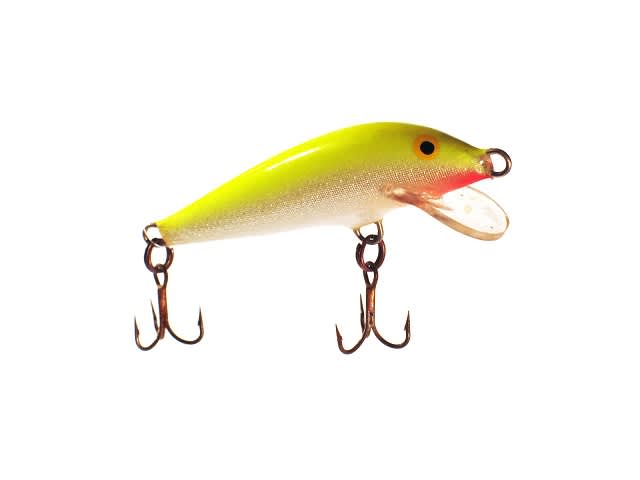Getting an Edge on the Bass Season: Early Season Jerkbaits
Kevin VanDam 02.14.12

If you want to get the jump on the bass season, tie on a jerkbait and head to your favorite lake the moment you sense water temperatures are on the rise.
This is prime time for catching giant bass and a period when the jerkbait is the best lure to catch them.
The early jerkbait season varies across the country and is contingent on when the water temperature is making those large, upward movements. For example, from the middle of the country southward, it may occur from now through March, or when water temperatures jump from the mid-40s to the low 50s.
In the north, it may not occur until April or May, but could happen when the water climbs into the mid 40s. Northern bass are more accustomed to colder water and get active at temperatures lower than what they do in the south.
Once the lake gets a couple of days of warm sun beating on it, look for the water temp to make big jumps. There may be snow on the ground, but the bass couldn’t care less.
Because warming water triggers the jerkbait bite, you don’t need to be on the water at daybreak. The best action typically occurs between 10 a.m. and 2 p.m. on the sunny days.
Finding the fish is the toughest part. Begin searching those winter areas, such as bluff banks or the ends of bluffs that meet a flat, or areas where bass congregate before they move into spawning bays and pockets.
Choose areas that get the most direct sunshine, such as banks facing the north or the gravel points of spawning bays. If a point extends into the main river channel, it’s even better.
Don’t worry about the depth, especially if the water is clear. I’ve caught bass on jerkbaits over 50 feet of water. If the bass can see the bait, they’ll come to get it.
Wind and current are good ingredients, too. In either case, work your bait with the current or wind, not against it. That means you may have to cast into the wind, but remember that will get you more bites.
Why jerkbaits? Because they provide the erratic action required to stimulate reactionary strikes and they stay in the strike zone longer. I prefer Strike King’s Wild Shiner jerkbait, but most suspending minnow plugs will catch them.
You want a bait that will dive to six feet or more and hold its depth without popping to the surface. Keep in mind that altitude and water temperature will affect how well the bait suspends, so alterations may be necessary. I prefer baits to suspend perfectly level, and if one doesn’t, I apply a little of the Tungsten Sticky Weight to the body. The balance point of most of these lures is just ahead or behind the front hook hanger, so that’s where you want to add weight.
Color depends upon clarity. When bass are feeding on shad, I prefer flashy gold and silver colors in clear water and pearl or fire tiger colors in stained water. Remember that this is a visual presentation so you need at least two feet water clarity for it to be effective.
Make long casts and begin jerking immediately; that gets the bait deeper. Experiment with the cadence and opt for slower retrieves and longer pauses in colder water. I usually use two-to-five second pauses and twitch the bait so that it only moves a foot or two at a time.
I tie direct to the split ring and fish these baits on 10 pound Bass Pro Shops Fluorocarbon line. A 6 and one-half foot medium or medium-heavy baitcast rod works best for me, but if I need to make longer casts, I opt for a spinning rod and lighter line.
Jerkbait fishing can wear you out, but it can be very rewarding during the early part of the season. That hard work can produce the biggest bass of the year and can come long before most anglers are on the water.

